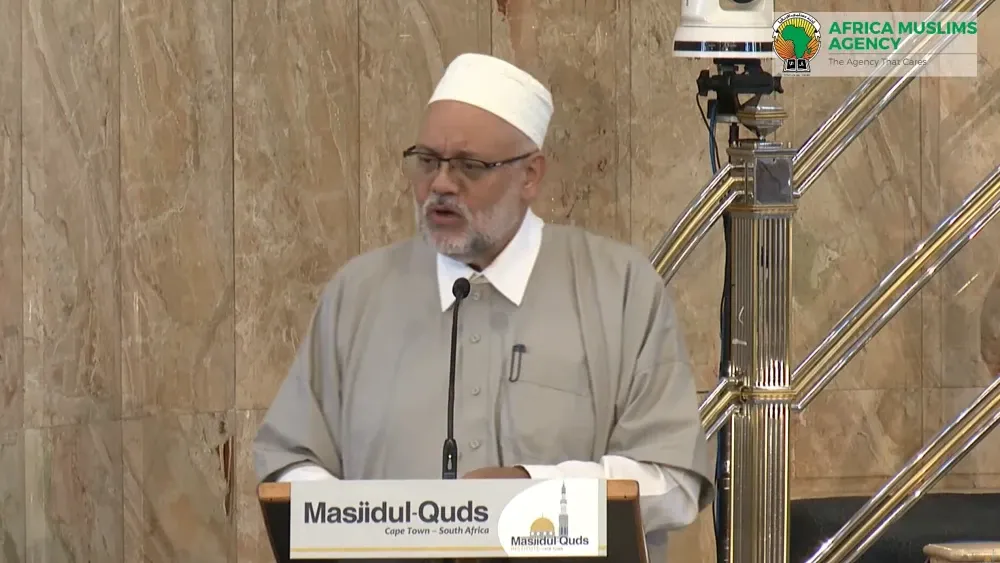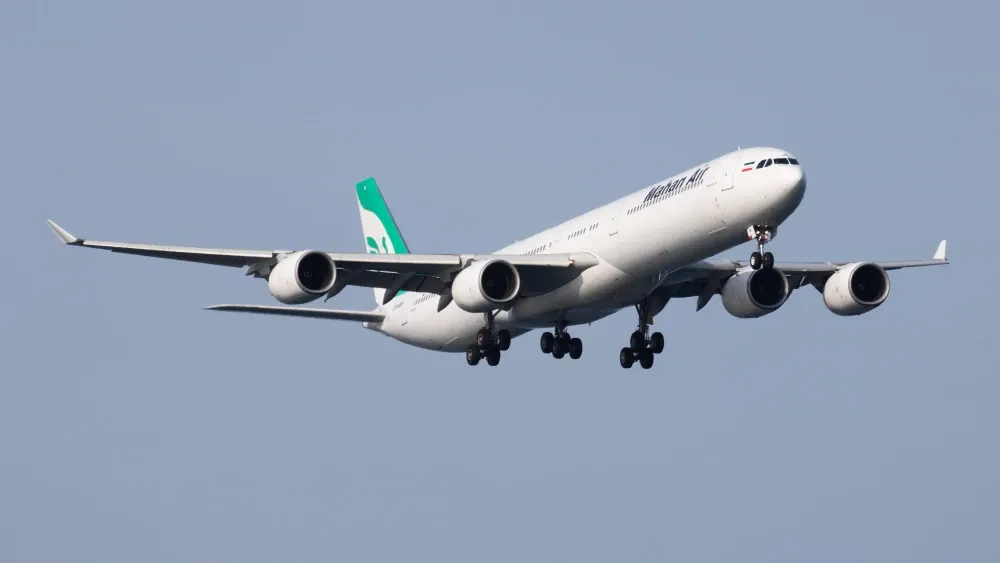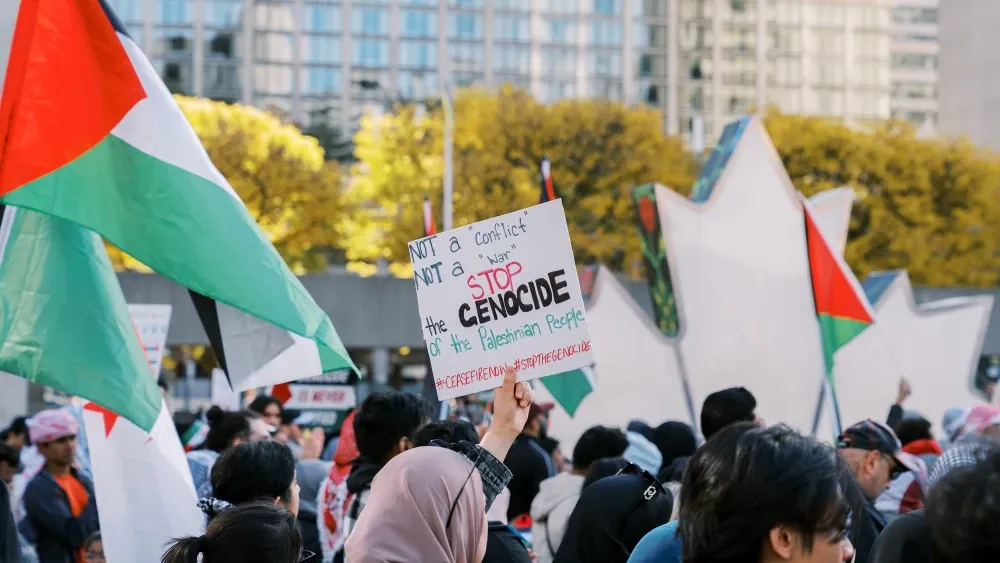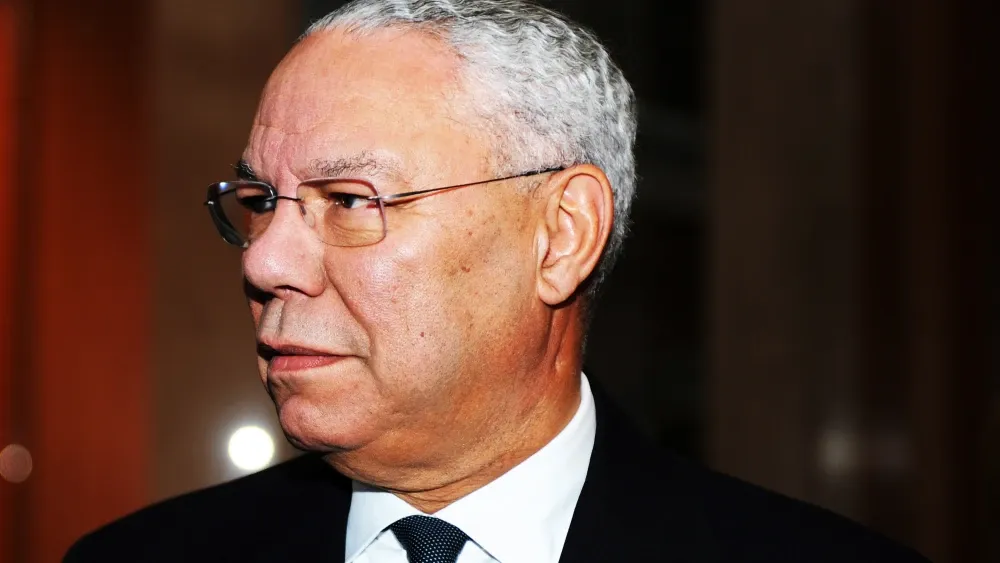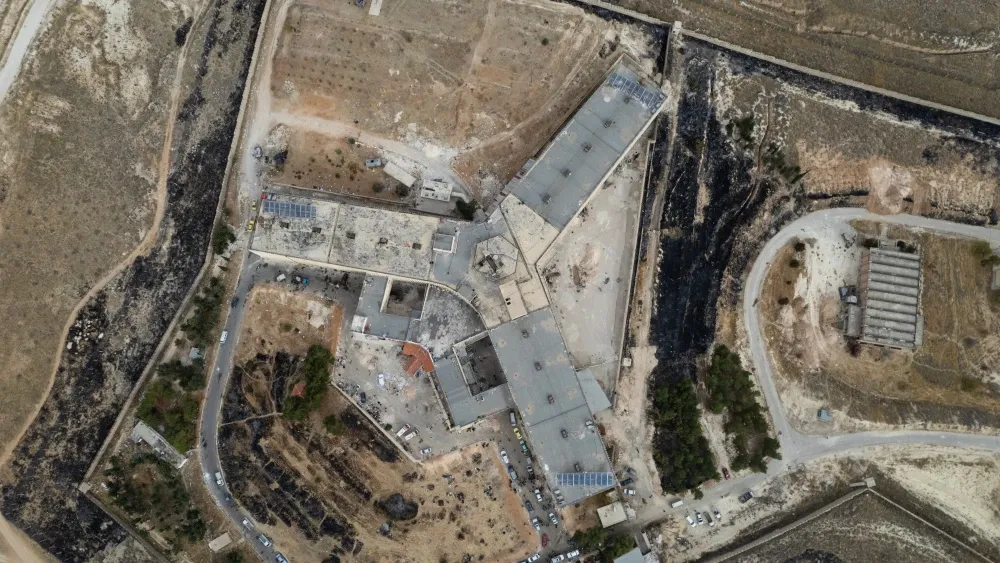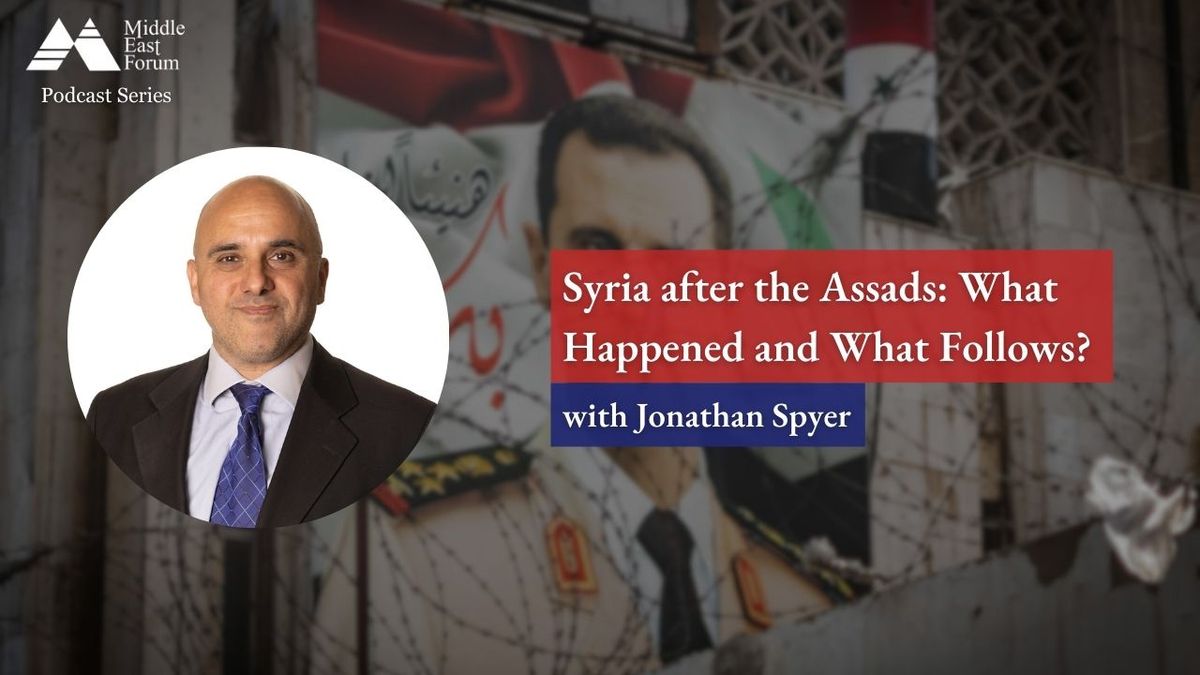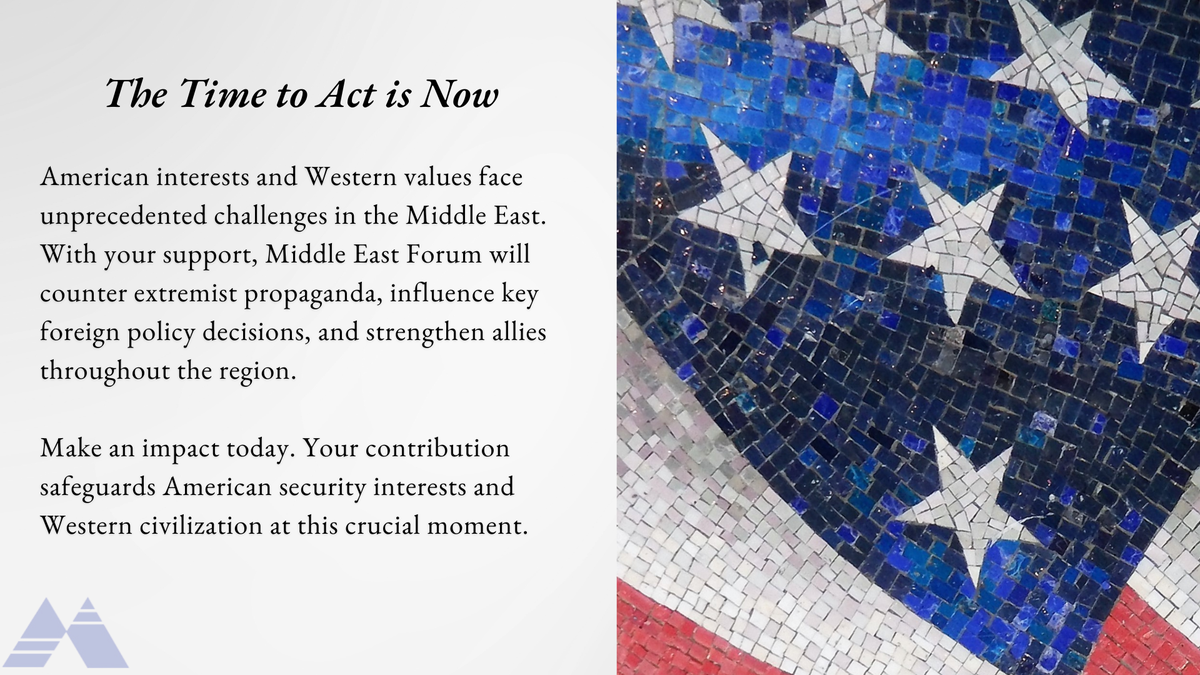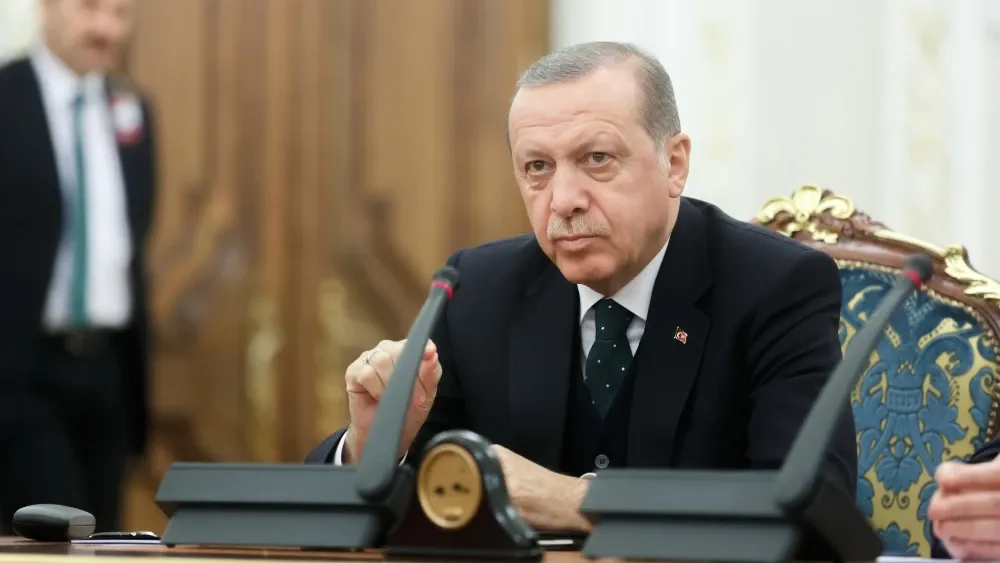| ||
 | ||
| Broken Pottery: Turkey, Iran, and the Game of Thrones in the Middle East By Ahnaf Kalam ● Dec 20, 2024 Smart Brevity® count: 6.5 mins...1728 words In this edition, we explore the controversial reappointment of Ebrahim Rasool as South Africa's ambassador to the U.S., highlighting his long history of involvement with designated terrorist organizations like Hamas and Palestinian Islamic Jihad and calling for his appointment to be denied. Additionally, in a story that has caused sharp reactions in Africa, we expose Iran's strategy to evade aviation sanctions through a partnership with a Nigerian airline. We also address the serious misuse of the term “genocide” in the context of Israel's actions in Gaza, arguing the importance of factual accuracy in such grave accusations—and their inaccuracy when aimed at Israel. Next, we scrutinize the lingering effects of Colin Powell's "Pottery Barn Rule" on U.S. policy, arguing that it unnecessarily constrains responses to emerging threats. This newsletter also reflects on the human rights atrocities committed by Bashar Assad in Syria and the willful blindness of the international community to his torture and mass murder of countless thousands of Syrians. We examine the new political dynamics following his fall, including Turkey's strategic maneuvers take Iran’s place as the dominant power in Syria. These and other articles offer a deep dive into current affairs, shedding light on the complexities of international relations and the moral imperatives at play. | ||
South Africa’s Terror-Tied Ambassador Returns to WashingtonSouth Africa has re-appointed Ebrahim Rasool, a diplomat with alleged ties to terrorism, as its ambassador to the U.S. Why it matters: Rasool's connections with designated terrorist groups like Hamas and Palestinian Islamic Jihad raise significant concerns for U.S. relations.
The big picture: Rasool's reappointment underscores South Africa's alignment with Islamist organizations.
What’s next: The U.S. should reject Rasool’s appointment due to his ties with extremist groups.
To read the full article, click here. | ||
Nigerian Airline Has Become Iran’s Partner in Aviation Sanctions EvasionIran is leveraging its influence in Nigeria to circumvent aviation sanctions and acquire Airbus A340s. Why it matters: This strategy highlights Iran's sophisticated methods to sidestep sanctions, posing challenges for U.S. foreign policy.
Iran’s widening influence: Mahan Air exploits Nigerian oversight to import aircraft, with Azman Air delivering an Airbus A340-642 to Iran despite international prohibitions.
What’s next: The U.S. must enhance monitoring of aircraft movements in Africa to curb these activities.
To read the full article, click here. | ||
When Accusations of ‘Genocide’ Go UnchallengedThe accusation of genocide against Israel in Gaza lacks credible proof, diluting the severity of true genocides. Why it matters: Unfounded claims of genocide undermine genuine debate and insult those who have suffered real atrocities.
One-sided accusations: The critic ignored Hamas's use of civilians as shields and the evidence contrary to the genocide narrative.
The importance of words: Words like "genocide" hold immense power and should not be wielded lightly.
To read the full article, click here. | ||
Colin Powell’s ‘Pottery Barn Rule’ Continues to Needlessly Constrain U.S. Policy Against Growing ThreatsColin Powell's "Pottery Barn Rule"—the notion that if you "break it, you own it"—continues to affect U.S. foreign policy, often unnecessarily restraining action against threats. Why it matters: This rule has led to costly and extended commitments in conflicts like Iraq and Afghanistan, where reconstruction overshadowed military objectives.
Breaking the mold: Powell’s analogy, rooted in post-WWII policies, doesn’t fit modern conflicts where enemy ideologies and threats differ vastly from the past.
The bottom line: Effective deterrence could emerge from allowing adversaries to understand the permanence of their destruction.
To read the full article, click here. | ||
We All Knew Syria Was HellWestern media's sudden outrage at the Assad regime's atrocities in Syria belies years of evidence ignored by policymakers and the public. Why it matters: The existence of mass graves and regime brutality was long known but often overlooked by the international community.
Hidden in plain sight: Reports like the 2017 Amnesty International's “Human Slaughterhouse” detailed the mass hangings at Sednaya, yet sparked little action.
The bottom line: The notion of an “international community” rings hollow when such crimes go unchallenged.
To read the full article, click here. | ||
WATCH: Jonathan Spyer on Syria After the Assads: What Happened and What Follows?The fall of Assad's regime to Hayat Tahrir al-Sham (HTS) marks a pivotal shift in Syria, with Abu Mohammed al-Jolani emerging as a new authoritarian leader. Why it matters: This development signals the resurgence of Sunni political Islam, affecting regional dynamics and security concerns.
Conflicting forces: The Syrian National Army (SNA), backed by Turkey, targets Kurdish forces, threatening Kurdish autonomy east of the Euphrates River.
Strategic implications: Israel moves to secure its borders, capturing strategic locations in Syria to mitigate potential threats from the new regime.
Looking ahead: The rise of Sunni Islamism poses challenges for regional stability, with potential hostility towards Israel and a shift in alliances.
To watch the full podcast episode, click here. | ||
Support MEF: Help Defend Western ValuesThe time to act is now. Critical opportunities lie before us to shape policy, expose Islamist propaganda and strengthen our Middle East allies on the front lines of conflict. Your tax-deductible gift powers our mission to uncover extremist networks, transform public debate, and advance strategic policies through key partnerships. As global threats intensify, your support ensures we continue delivering measurable results. Will you help us protect the democratic principles that define our civilization? Click here to make a tax-deductible gift to the Middle East Forum. | ||
The United States Needs to Prepare to Kill Turks in SyriaThe United States faces growing tensions with Turkey, whose actions in Syria threaten American forces and interests. Why it matters: Turkey's alignment with radical Sunni groups and its aggression towards Kurdish allies undermine regional stability and endanger U.S. personnel.
Crossing the line: Turkey's support for groups like Hay’at Tahrir al-Sham poses direct threats to U.S. forces combating ISIS.
Strategic recalibration: The U.S. must openly address Turkey's actions and prepare for assertive measures to protect its interests.
To read the full article, click here. | ||
Turkey Plans to Run Syria Through a Parallel StructureTurkey is strategically positioning itself to influence Syria's future governance by establishing a parallel shadow structure. Why it matters: This approach allows Turkey to exert control without overt interference, positioning it as a dominant influence in post-Assad Syria.
Strategic integration: Turkey aims to blend Syrian army troops with the Syrian National Army (SNA) and jihadist groups like Hayat Tahrir al-Sham (HTS).
Cultural and economic reshaping: The Erdoğan government is implementing a "Turkification" project, altering educational, economic, and cultural landscapes in Turkish-controlled areas.
The bottom line: While Turkey's plan could reshape Syria, achieving this on a national scale poses challenges and risks backlash.
To read the full article, click here. | ||
Further reading: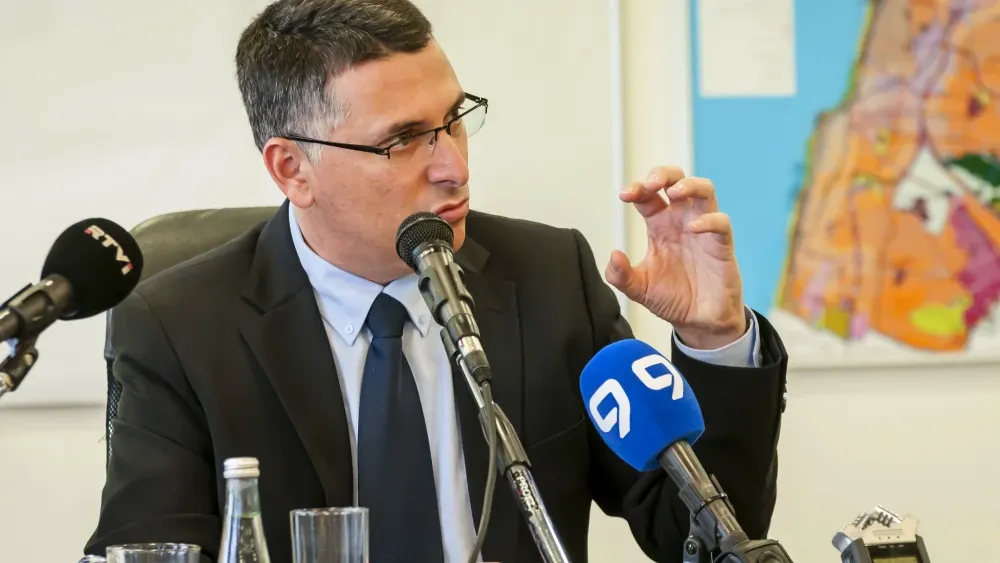
| ||
| In this edition of the MEF Dispatch, we've navigated a landscape where diplomacy meets deceit, policy confronts principle, and diplomatic discourse may enlighten—but also mislead. From the contentious reappointment of Ebrahim Rasool to the strategic shadows cast by Turkey and Iran, these stories underscore the delicate balance of power, the misuse of language in conflict, and the enduring effects of past policies on current global dynamics. Looking ahead, we will continue to sponsor original, rigorous analysis and investigative journalism to bring you accurate and insightful writing on the Middle East and its influences on our world. | ||
| Was this edition useful? Your responses are anonymous | ||
| Powered by | ||
| ||

